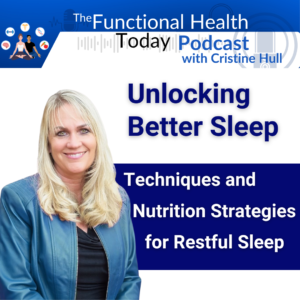 Trace minerals, though required in minute quantities, play a pivotal role in maintaining overall health and well-being. These essential nutrients, including iron, zinc, and selenium, contribute to various physiological functions, from immune support to enzyme activity. Understanding their significance is crucial for optimizing nutrition and preventing deficiencies in our diets.
Trace minerals, though required in minute quantities, play a pivotal role in maintaining overall health and well-being. These essential nutrients, including iron, zinc, and selenium, contribute to various physiological functions, from immune support to enzyme activity. Understanding their significance is crucial for optimizing nutrition and preventing deficiencies in our diets.
KEY POINTS
Trace minerals, including iron, zinc, and selenium, are essential in small amounts for overall health, supporting immune function, enzyme activity, and energy production.
Minerals like manganese, chromium, and iodine play unique roles, from promoting bone strength and metabolic health to supporting brain function and hormone regulation.
Key trace minerals contribute to maintaining healthy skin, hair, and nails, with copper and zinc aiding in collagen production and wound healing.
Incorporating trace minerals from diverse foods such as nuts, seeds, leafy greens, and lean meats can help prevent deficiencies and optimize well-being.

Pop in your email below, and we’ll zip it straight to your inbox so you never lose it!
What Are Dietary Trace Minerals and Why Are They Important?
Defining Trace Minerals and Their Functions
Trace minerals are essential minerals that the body needs in small amounts to function properly. These trace elements include fluoride, which helps your body maintain healthy teeth, and iron, essential for preventing iron deficiency. Vitamin B12 and other vitamins are also crucial for diet and health.
According to the National Health and Nutrition Examination survey, minerals are essential nutrients that support various bodily functions, including carbohydrate metabolism. Foods that are high in trace minerals contribute to overall food and nutrition, ensuring that the body can’t function optimally without them. High blood pressure and other health issues can arise from deficiencies.
In summary, trace minerals play a vital role in health and nutrition. They are nutritionally essential for maintaining a balanced diet. The Food and Drug Administration emphasizes their importance in supporting overall wellness, highlighting that minerals are needed for the body to thrive.
How Do Trace Elements Support Body Needs?
 Trace elements are essential for growth and play a crucial role in various metabolic processes. Essential trace elements include minerals like iron, which is vital for the formation of red blood cells, while trace minerals are needed for wound healing and maintaining healthy bones and teeth.
Trace elements are essential for growth and play a crucial role in various metabolic processes. Essential trace elements include minerals like iron, which is vital for the formation of red blood cells, while trace minerals are needed for wound healing and maintaining healthy bones and teeth.
These elements in human nutrition are required in trace amounts and are often found in a diet containing a variety of macro minerals and vitamins. Ultra-trace minerals also play a role in preventing oxidative damage and supporting overall health, especially in individuals relying on total parenteral nutrition without a balanced diet alone.
Without adequate intake of these vitamins and minerals, clinical manifestations may arise, highlighting the importance of a well-rounded diet. Each trace element contributes significantly to the body’s needs, helping the body function optimally.
Looking to take control of your weight & nutrition?

Essential Trace Minerals vs. Essential Nutrients
Trace elements are also minerals included in the total body composition, playing vital roles in physiological and metabolic processes. These essential nutrients are involved in energy production and growth and development, contributing to mineral content in a variety of foods.
Foods that contain these trace elements are crucial for maintaining health. The recommended dietary allowance set by the National Institutes of Health highlights the significance of these minerals. Each mineral complex has specific roles in the body, often as enzymes involved in biochemical reactions.
The relationship between dietary intake and overall well-being underscores the importance of ensuring adequate mineral content in our diets. Trace elements are present in the body and are also essential for optimal health.
What Are the Types of Trace Minerals Your Body Needs?
Exploring Common Trace Minerals: Zinc, Selenium, and Iodine
Exploring common trace minerals such as zinc, selenium, and iodine, we find that these elements are crucial for health. They are often considered a part of vitamin supplements, highlighting their importance in nutrition.
These minerals are naturally found in foods like seafood, nuts, and grains, making them accessible through a balanced diet.
Understanding their roles is vital as they are all related to dietary requirements, influencing various bodily functions and overall well-being.
Understanding Other Essential Trace Elements: Manganese and Chromium
Manganese is a vital trace element that plays a crucial role in bone formation, metabolism, and antioxidant defense. It aids in the enzymatic processes necessary for digestion and nutrient absorption.
Chromium, another essential trace element, enhances insulin action and glucose metabolism. It supports the body’s ability to maintain normal blood sugar levels, highlighting its importance in overall metabolic health.
How Potassium and Magnesium Fit Into the Picture
Potassium and magnesium are essential minerals that play crucial roles in maintaining overall health. Potassium helps regulate fluid balance, nerve signals, and muscle contractions, while magnesium is vital for energy production, protein synthesis, and bone health.
Together, these minerals support cardiovascular function and help reduce the risk of chronic diseases, making them integral to a balanced diet.
What Are the Health Benefits of Essential Trace Minerals?
 Essential trace minerals, though needed only in small amounts, play crucial roles in maintaining overall health. Here are some key benefits of these vital nutrients:
Essential trace minerals, though needed only in small amounts, play crucial roles in maintaining overall health. Here are some key benefits of these vital nutrients:
- Supports Immune Function
- Minerals like zinc and selenium are essential for a robust immune system. Zinc aids in white blood cell production and immune responses, while selenium has antioxidant properties that help reduce oxidative stress and inflammation.
- Minerals like zinc and selenium are essential for a robust immune system. Zinc aids in white blood cell production and immune responses, while selenium has antioxidant properties that help reduce oxidative stress and inflammation.
- Promotes Healthy Skin and Hair
- Trace minerals such as copper, zinc, and manganese contribute to skin elasticity, collagen production, and wound healing. These minerals also help reduce the appearance of wrinkles and support healthy hair growth.
- Trace minerals such as copper, zinc, and manganese contribute to skin elasticity, collagen production, and wound healing. These minerals also help reduce the appearance of wrinkles and support healthy hair growth.
- Boosts Energy Production
- Iron is crucial for hemoglobin production, which transports oxygen to cells. Other trace minerals, like manganese and copper, play roles in cellular energy production and support metabolic processes, helping the body convert food into energy.
- Iron is crucial for hemoglobin production, which transports oxygen to cells. Other trace minerals, like manganese and copper, play roles in cellular energy production and support metabolic processes, helping the body convert food into energy.
- Strengthens Bones and Teeth
- Minerals like fluoride and manganese contribute to bone density and strength. Fluoride helps harden tooth enamel, reducing the risk of cavities, while manganese aids in bone formation and connective tissue health.
- Minerals like fluoride and manganese contribute to bone density and strength. Fluoride helps harden tooth enamel, reducing the risk of cavities, while manganese aids in bone formation and connective tissue health.
- Supports Brain Health and Cognitive Function
- Iodine is essential for thyroid function, which influences brain development and function. Iron also supports cognitive health, as it helps deliver oxygen to the brain, while zinc plays a role in neurotransmitter function and memory.
- Iodine is essential for thyroid function, which influences brain development and function. Iron also supports cognitive health, as it helps deliver oxygen to the brain, while zinc plays a role in neurotransmitter function and memory.
- Balances Hormones
- Minerals like selenium, iodine, and zinc are vital for hormone regulation. Iodine is crucial for thyroid hormone production, which regulates metabolism, growth, and energy levels, while selenium supports thyroid function and overall hormonal balance.
- Minerals like selenium, iodine, and zinc are vital for hormone regulation. Iodine is crucial for thyroid hormone production, which regulates metabolism, growth, and energy levels, while selenium supports thyroid function and overall hormonal balance.
- Protects Against Oxidative Stress
- Selenium, manganese, and copper act as antioxidants, protecting cells from damage by neutralizing free radicals. This protective function reduces the risk of chronic conditions such as heart disease and certain cancers.
- Selenium, manganese, and copper act as antioxidants, protecting cells from damage by neutralizing free radicals. This protective function reduces the risk of chronic conditions such as heart disease and certain cancers.
- Enhances Muscle Function and Recovery
- Magnesium, a trace mineral often overlooked, plays a role in muscle contraction, relaxation, and recovery. It helps prevent cramps and fatigue, which is particularly beneficial for active individuals.
Incorporating foods rich in essential trace minerals—such as leafy greens, nuts, seeds, whole grains, and lean meats—can support these vital functions and contribute to a balanced diet and overall wellness.











